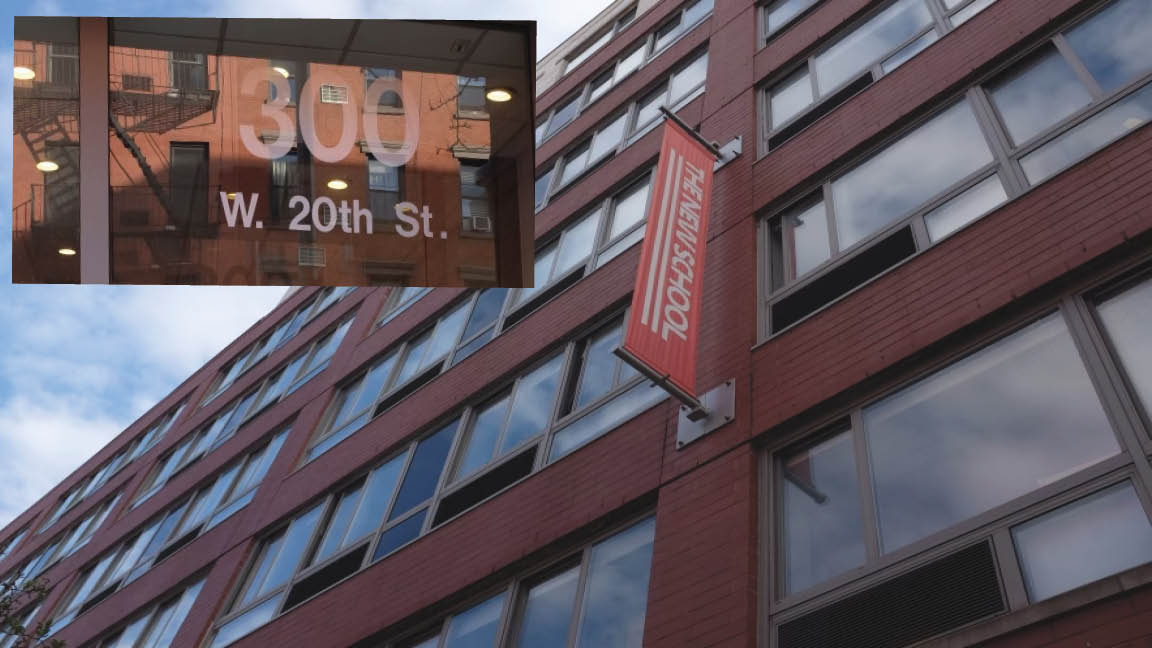Due to a significant lack of demand, The New School is selling the 20th St. Residence Hall, according to Thomas Whalen, who oversees facilities and building management at the university. The deal is set to close in early June.
“What it really boils down to is the level of student satisfaction in this building is not what we’d like it to be. We’d rather use our resources in places where students actually like living,” said Thomas Whalen, the Assistant Vice President of Facilities Management at The New School.
There are a few reasons why 300 W 20th St. hasn’t necessarily been a coveted residence hall, Whalen explained. “It’s a weird building, the layout is really odd. It’s also a bit off the beaten path, and some of the apartments are difficult to market to students,” especially the 10-12-person suites.
Selling 300 W 20th St. “has been in the water for years,” he explained, “but over the last couple of months, we finally took a good hard look at it and decided that it’s really time to move on from it.”
Many students have heard a rumor circulating around campus that the university has decided to sell the notorious 301 Residence Hall. While there is some truth to this, the property is not for sale.
“It’s the old game of telephone,” said Whalen. “The mix-up happens in my office all the time with 300 and 301,” he said, referring to 300 West 20th St. as opposed to 301 First Avenue.
Although the unfavorable reputation that 301 Residence Hall has garnered over the years made news of its potential closure seem well within reason, the future of the building remains unclear. Since a new housing policy will be implemented next fall requiring all first-year students to live in an on-campus residence, the university is maintaining ownership of the long-term lease to 301 incase they need more space to house students.
In response to the inquiry about the 20th St. residence hall, Amy Malsin, Vice President of University Communications, stated, “The 20th Street Residence Hall has not been sold nor has 301. While the university is exploring the sale of the 20th St. Residence Hall, ample housing for the 2024-2025 academic year will be available for students.”
“With any real-estate sale, nothing is definitive until you get to that closing date and everybody signs on the dotted line,” Whalen said, but to his knowledge, the buyers and real estate agents have done their due diligence and are going through all of the motions towards finalizing the deal. “We even have a closing date for the first week of June,” he said, “ I see no reason why [the sale] is not going to go through.”
“Everything that I’ve heard, and everything that my team and I have been getting ready for is to sell the building. We’ve moved all of our summer reservations [to another residence hall], I’m getting ready to close down the building operations,” he said.
In terms of 301, which has been removed from The New School’s housing website along with 20th St. Residence Hall, the university is keeping the building in its back pocket.
The New School does not actually own the 301 Residence Hall. The university currently holds a long-term lease on the property, which they have decided not to give up for the time being. This allows for the university to “use [301] as backup housing if we have a shortage at any given year.” Whalen assures students that anyone who wishes to live on campus will be able to do so.
At the moment, “301 is in a kind of holding pattern,” said Whalen. “If the space is needed, it will certainly be used. If not, then we will probably explore other alternatives to see how best to utilize the property.”
This all depends on demand. To efficiently disperse The New School’s Residence Halls and financial resources, new incoming students will be housed at Kerrey Hall and Stuyvesant Hall — the latter has been undergoing renovations for the past year and is set to open for the fall semester. Returning students will be housed at Loeb Hall. In the event of an increase in the need for student housing, 301 will come into play.
“Since this is the first year we’ve had the first-year housing requirement,” said Whalen, the university doesn’t have a full tally of the housing needs for the coming year which has made it difficult to calculate the amount of space that will be needed. “If our numbers come in and it’s clear we don’t need it, I think that we would explore other options.”
“There are a lot of factors on the table. We’re not going to be just saying, oh, we’re closing 301 because we don’t want to use it– It’s really going to be based on whether or not we have demand for the building.”








Leave a Reply